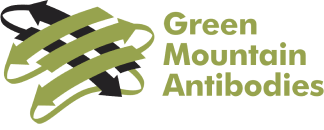Timeline & Cost Factors in Custom Monoclonal Antibody Development
Understanding the timeline and cost of custom monoclonal antibody development is essential for research and biotech teams planning new assays, diagnostics, or therapeutic projects. Whether you need small-scale R&D quantities or a robust development pipeline, knowing what drives price and turnaround time helps you make informed decisions—and avoid delays.
In this guide, we break down the primary factors that influence monoclonal antibody development cost and custom antibody development timelines, and offer tips on how to streamline your next project.
What Is the Typical Timeline for Custom Monoclonal Antibody Development?
At Green Mountain Antibodies, the end-to-end timeline for monoclonal antibody development typically spans 12–24 weeks. However, timelines can vary depending on the scope and complexity of your project.
General Timeline Breakdown:
- Week 0–2: Antigen design, synthesis, and quality checks
- Week 3–6: Mouse immunization and titer evaluation
- Week 7–10: Cell fusion, HAT selection, and hybridoma screening
- Week 11–14: Subcloning and isotype testing
- Week 15–18: Expansion, cryopreservation, and pilot purification
- Week 19–24: Final purification and validation
For projects with urgent timelines, we offer accelerated packages that compress the early phases without sacrificing quality. If your study requires faster delivery, we encourage you to schedule your antibody consultation to explore time-saving options.
What Affects the Cost of Monoclonal Antibody Development?
The cost of monoclonal antibody development depends on several core variables:
- Antigen Type & Preparation: Peptides, full-length proteins, or post-translational modifications influence cost due to synthesis complexity.
- Immunization Schedule: Longer immunization protocols with additional boosts increase time and animal use.
- Screening Requirements: Projects needing multiple formats (e.g., ELISA + Western blot + IHC) require more reagents and analysis.
- Clone Selection Depth: More extensive clone screening adds cost but improves the odds of identifying high-affinity candidates.
- Downstream Services: Adding isotyping, purification, endotoxin testing, or bulk development contributes to the overall budget.
Custom projects typically range from $25,000 to $45,000 and up, depending on the deliverables, screening depth, and development scale. Bulk and long-term projects may qualify for discounted pricing.
Additional Considerations Impacting Timeline and Budget
- Validated Antigens: Providing your own validated antigen can reduce both cost and development time.
- Host Strain Preferences: Using specialized mouse strains may increase costs due to breeding and availability.
- Format Complexity: Antibodies designed for conjugation, biotinylation, or recombinant conversion involve additional steps.
- Regulatory Needs: Projects intended for diagnostics or preclinical development may require extra QC documentation.
Tips to Optimize Budget & Timelines
- Start with a Defined Use Case – Clarify your application (e.g., diagnostic assay, therapeutic prototype, academic research).
- Provide a Validated Antigen When Possible – This can reduce synthesis and QC time.
- Limit Screening to Key Formats – Prioritize formats most relevant to your use case.
- Request Early Project Scoping – Our scientists can help define the most efficient path to your endpoint.
- Explore Phase-Gated Deliverables – Receive hybridoma clones and purified antibody at separate stages.
Why Choose Green Mountain Antibodies?
Our US-based team provides:
- Transparent project timelines with weekly milestone updates
- Scalable services from pilot projects to bioanalysis
- Full support for hybridoma development, isotyping, and purification
- Expertise across diagnostic, research, and preclinical antibody applications
Visit our monoclonal antibody development service page to explore capabilities or schedule your antibody consultation for a tailored estimate.
